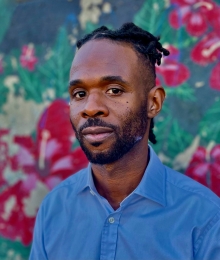Abolition: A Social Justice Practicum
Course Information
- Course Number
- L8419
- Curriculum Level
- Upperclass
- Areas of Study
- Criminal Law and Procedure, Human Rights, Racial, Economic, and Social Justice
- Type
- Practicum
Section 001 Information
Instructor
 Omavi Shukur
Associate Research Scholar
Omavi Shukur
Associate Research Scholar
 Bernard E. Harcourt
Isidor and Seville Sulzbacher Professor of Law
Bernard E. Harcourt
Isidor and Seville Sulzbacher Professor of Law
Section Description
This course will engage, both in theory and in practice, the ambition of racial justice and abolition democracy. It will study the history of race relations in this country. It will seek to chart the road to abolition of the punitive paradigm in the United States. It will investigate what it might mean to imagine abolition in the context of policing, of the prison, and also of punishment more broadly. And it will do so not only through readings and seminar-style discussion, but with hands on practice in legal cases involving capital punishment, police violence, and protest rights, as well as public policy interventions.
The United States incarcerates more of its own than any other country in the world and than any other civilization in history. With over 2,600 inmates on death row, 2.2 million people behind bars, another 5 million people on probation or parole, and over 70 million people in the FBI's criminal record database, this country now operates a criminal justice system of unparalleled punitiveness. The burden of this system has fallen predominantly on poor communities of color. In fact, in some striking ways, this country's criminal justice system and reliance on mass incarceration have replaced chattel slavery. As Bryan Stevenson explains, "Slavery didn't end in 1865. It just evolved."
This course will explore how the country can move from a punitive paradigm to a new paradigm that favors instead education and well-being. It will investigate: (1) how to chart a social justice path toward prison abolition; (2) how to reimagine the criminal legal process so that it is no longer based on a punitive paradigm; and (3) what it would mean to imagine abolition more broadly.
This course will be limited to 8 law students (and 3 undergraduate students). Students will work on law projects together on mixed teams of law and undergraduate students. Research projects will be in the areas of capital punishment, criminal defense and advocacy, civil rights litigation, and appellate litigation.
This practicum will be co-taught by Omavi Shukur and Bernard E. Harcourt.
Students who wish to take the practicum should send a paragraph describing their background and reason for wanting to take the practicum, along with a CV. Please send this information to Fonda Shen at [email protected].
- School Year & Semester
- Fall 2021
- Location
- JGH 701
- Schedule
-
Class meets on
- Tuesday
- Points
- 2
- Method of Evaluation
- Other
- J.D Writing Credit?
- No
Learning Outcomes
- Primary
-
- At the end of the course, students will have acquired understanding of and/or facility in using law as a tool for justice.
- Secondary
-
- At the end of the course, students will have acquired understanding of and/or facility in the ethical and professional practice of law.
Course Limitations
- Instructor Pre-requisites
- None
- Instructor Co-Requisites
- None
- Recommended Courses
- None
- Other Limitations
- Permission only. Limited to 8 law students. Students who wish to take the practicum should send a paragraph describing their background, along with a CV. Please send this information to Fonda Shen at [email protected].

